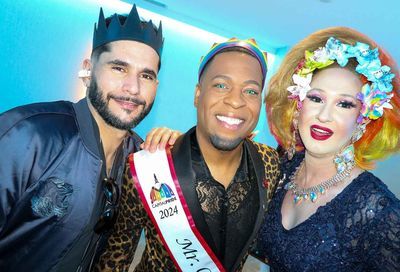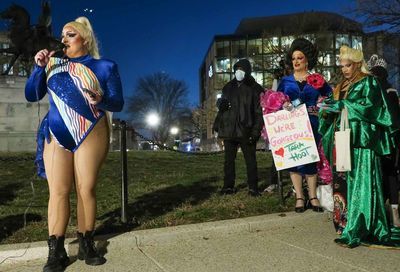Illinois General Assembly passes conversion therapy ban
Measure aimed at protecting LGBT minors heads to the desk of Gov. Bruce Rauner

The Illinois State Senate on Friday voted to approve a measure banning licensed therapists from practicing sexual orientation change efforts, or conversion therapy, on minors. The bill was approved by a wide margin in the House of Representatives earlier this month, and now heads to the desk of Gov. Bruce Rauner, a Republican.
Passage of the bill, known as the Illinois Youth Mental Health Protection Act, continues a trend of states choosing to tackle the issue. Legislation to prohibit the practice of conversion therapy on minors was introduced in 18 different states in 2015, with Oregon being the latest to ban the practice on May 18. If signed into law by Rauner, the bill would make Illinois the fourth state and fifth jurisdiction overall to ban conversion therapy for minors, which opponents say can lead LGBT or questioning youth to engage in substance abuse, become depressed, and even attempt suicide.
“We couldn’t be prouder to add Illinois to the list of legislatures that have acted to protect LGBT youth, and we applaud the dedication of Equality Illinois and the tireless coalition on the ground,” said Samantha Ames, a staff attorney for the National Center for Lesbian Rights (NCLR) and coordinator of the organization’s #BornPerfect campaign, which seeks to ban conversion therapy in all states by 2019.
“We hope Governor Bruce Rauner will join fellow Republicans like Chris Christie, who signed New Jersey’s conversion therapy ban in 2013,” Ames continued. “No matter our sexual orientation, gender identity, or political party, we can all agree that children’s lives are worth protecting. We call on Governer Rauner to sign this lifesaving bill and protect LGBT youth and their families from these dangerous and fraudulent practices.”
The Human Rights Campaign (HRC), another partner in the coalition moving to ban the practice of conversion therapy, also chimed in with its own statement.
“By passing this important legislation, Illinois lawmakers on both sides of the aisle stood up for equality and against a dangerous practice that uses fear and shame to tell young people the only way to find love or acceptance is to change the very nature of who they are,” said HRC Legal Director Sarah Warbelow. “We urge Governor Rauner to sign this bipartisan legislation into law and protect the state’s youth from this harmful and discredited practice.”
If Rauner chooses to veto the bill, the Democratic-dominated General Assembly would have to find two more votes in the Senate and three more votes in the House in order to override a veto. Unfortunately for advocates, most legislation relating to conversion therapy has stalled in recent years, even in very liberal-leaning states. One such bill in New York has passed the Democratic-controlled State Assembly but remains mired in committee in the Republican-controlled Senate. Another measure, this one in Massachusetts, has stalled in a joint House and Senate committee.
On the other hand, if Illinois is able to pass the bill into law, either with Rauner’s signature or through a veto override, it is likely that the measure will withstand any potential legal challenges. Both California and New Jersey’s laws banning the practice were challenged in the courts, but both were upheld by the 9th U.S. Circuit Court of Appeals and the 3rd U.S. Circuit Court of Appeals, respectively. Still other advocates are going after those who practice the therapy through other avenues. On June 2, a New Jersey Superior Court judge will hear a lawsuit lodged against a Jewish group that claimed to be able to change clients’ sexual orientation, with SPLC arguing that Jews Offering New Alternatives for Healing (JONAH) violated New Jersey’s Consumer Fraud Act through “deceptive practices.” A bill introduced by U.S. Rep. Ted Lieu (D-Calif,) would seek to end conversion therapy by allowing the Federal Trade Commission to classify conversion therapy as “fraud” and put those who engage in it at risk of becoming the target of litigation.
Support Metro Weekly’s Journalism
These are challenging times for news organizations. And yet it’s crucial we stay active and provide vital resources and information to both our local readers and the world. So won’t you please take a moment and consider supporting Metro Weekly with a membership? For as little as $5 a month, you can help ensure Metro Weekly magazine and MetroWeekly.com remain free, viable resources as we provide the best, most diverse, culturally-resonant LGBTQ coverage in both the D.C. region and around the world. Memberships come with exclusive perks and discounts, your own personal digital delivery of each week’s magazine (and an archive), access to our Member's Lounge when it launches this fall, and exclusive members-only items like Metro Weekly Membership Mugs and Tote Bags! Check out all our membership levels here and please join us today!





















You must be logged in to post a comment.